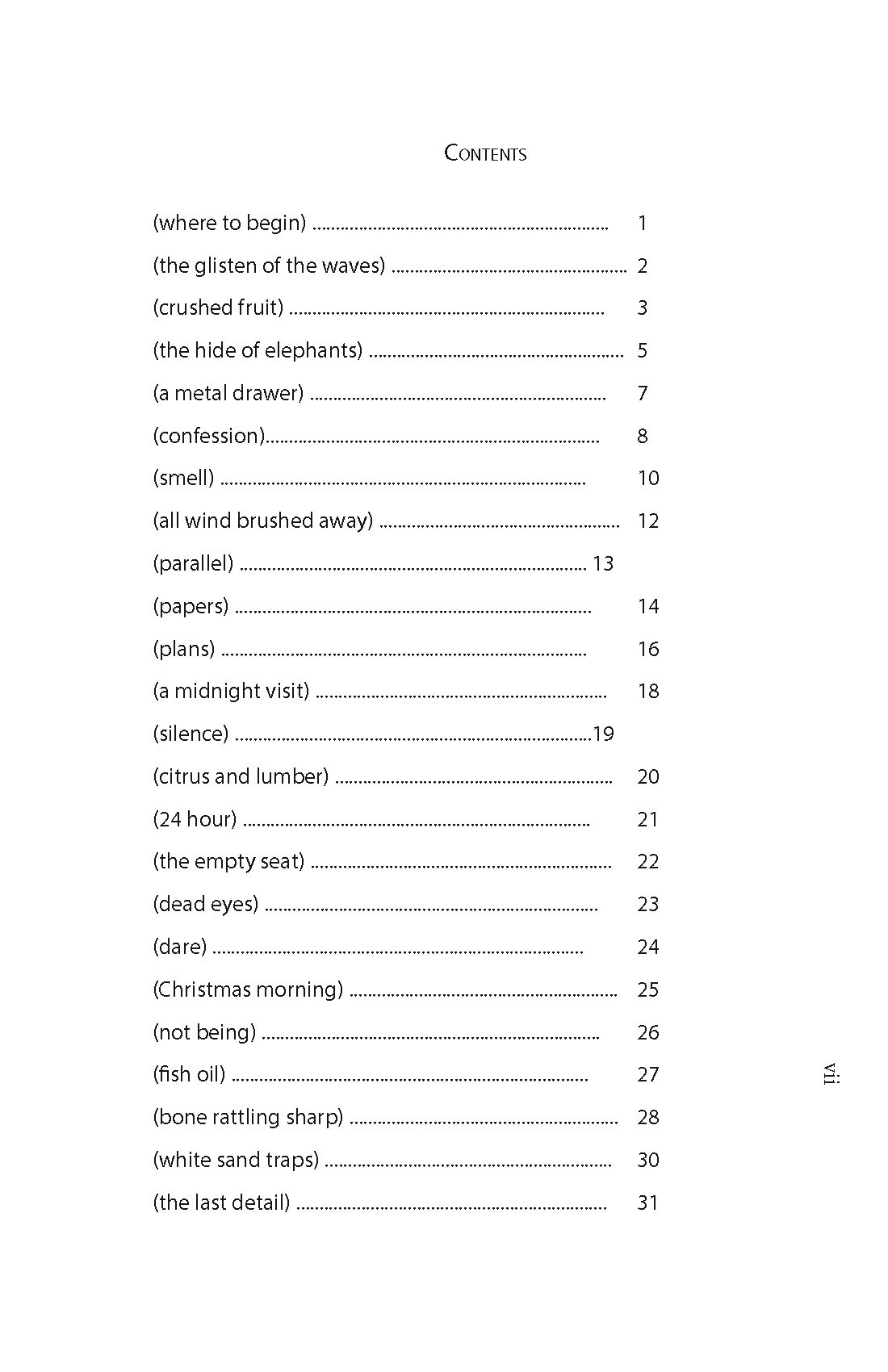 Image 1 of 12
Image 1 of 12

 Image 2 of 12
Image 2 of 12

 Image 3 of 12
Image 3 of 12

 Image 4 of 12
Image 4 of 12

 Image 5 of 12
Image 5 of 12

 Image 6 of 12
Image 6 of 12

 Image 7 of 12
Image 7 of 12

 Image 8 of 12
Image 8 of 12

 Image 9 of 12
Image 9 of 12

 Image 10 of 12
Image 10 of 12

 Image 11 of 12
Image 11 of 12

 Image 12 of 12
Image 12 of 12













Silence
Silence is a book that opens up our definitions of self-realization. In many ways, we are treated to an almost cinematic rendering of this search. With the beautiful and, often, desolate landscape of Florida’s orange grove country, Munnis reconceives a past that often blurs memory, truth, perception, and awareness. As the narrator, Brian, pushes through his past, his discoveries illuminate the roles each of us play in a family. And when Brian journeys through his past, we are face to face with the surreal and sensory imagery of this family’s life. The cattails, dead birds, and diesel fuel smells surrounding a boy’s life in Titusville make an impressionistic effect while the clear and unadorned realizations of Munnis’ narrator take us to a place of understanding: hatred wrapped in love, misunderstanding and shame masked in silence, love and tenderness in small kindnesses.
Complicating this cinematic cycle of poems is the pressure of a family negotiating a life of power, money, and violent tendencies. As dramatic tensions rise in many sections of these poems, the awareness of what these tensions mean rises alongside the pivotal events where race, memory, sex, love, and loss merge. We cannot look away. If we need a word for this inevitability and its power to draw us in, it would be destiny. And in these poems as we travel with narrator, we meet his destiny and the inevitable pursuit and renegotiation of the past.
—Wynn Yarbrough, Ph.D, teaches Creative Writing at the University of the District of Columbia. He is also the author of A Boy’s Life (Pessoa Press, 2011) and a critical work, Masculinity in Children’s Animal Stories, 1888-1928: A Critical Study of Anthropomorphic Tales by Wilde, Kipling, Potter, Grahame, and Milne (McFraland Press, 2011).
PAPERBACK, 63. PAGES
Silence is a book that opens up our definitions of self-realization. In many ways, we are treated to an almost cinematic rendering of this search. With the beautiful and, often, desolate landscape of Florida’s orange grove country, Munnis reconceives a past that often blurs memory, truth, perception, and awareness. As the narrator, Brian, pushes through his past, his discoveries illuminate the roles each of us play in a family. And when Brian journeys through his past, we are face to face with the surreal and sensory imagery of this family’s life. The cattails, dead birds, and diesel fuel smells surrounding a boy’s life in Titusville make an impressionistic effect while the clear and unadorned realizations of Munnis’ narrator take us to a place of understanding: hatred wrapped in love, misunderstanding and shame masked in silence, love and tenderness in small kindnesses.
Complicating this cinematic cycle of poems is the pressure of a family negotiating a life of power, money, and violent tendencies. As dramatic tensions rise in many sections of these poems, the awareness of what these tensions mean rises alongside the pivotal events where race, memory, sex, love, and loss merge. We cannot look away. If we need a word for this inevitability and its power to draw us in, it would be destiny. And in these poems as we travel with narrator, we meet his destiny and the inevitable pursuit and renegotiation of the past.
—Wynn Yarbrough, Ph.D, teaches Creative Writing at the University of the District of Columbia. He is also the author of A Boy’s Life (Pessoa Press, 2011) and a critical work, Masculinity in Children’s Animal Stories, 1888-1928: A Critical Study of Anthropomorphic Tales by Wilde, Kipling, Potter, Grahame, and Milne (McFraland Press, 2011).
PAPERBACK, 63. PAGES
